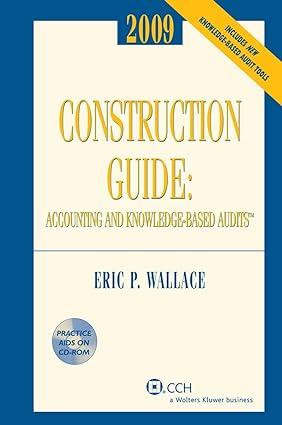Question
What began as an addiction for fine jewelry and clothing, ended in a major expense reimbursement fraud totaling $240,000. The perpetrator became a first-time offender
What began as an addiction for fine jewelry and clothing, ended in a major expense reimbursement fraud totaling $240,000. The perpetrator became a first-time offender shortly after acquiring a management position in a worldwide consulting firm in Chicago. Her position created an opportunity to abuse expense reimbursements. She rationalized her exorbitant purchases of consumer goods as the only remedy for her severe depression.
Beginning in the summer of 2001, Jennifer Childe submitted false and inflated expense reports to her new employer, Andrew Consulting. Even with her $150,000 salary and her husband's ample attorney income, when the opportunity to commit fraud increased then her appetite for spending grew proportionately. It appears that Childe believed she could get away with this fraud when she sought reimbursement for fees paid in advance for attendance at an upcoming conference. After she was unable to attend, she received a refund from the conference planners for the same amount that Andrew had previously reimbursed. Childe decided to keep the extra money and pay off some credit card debt. Because this crime was easy, she then falsified other expense documents. First, she filled her pockets with almost $19,000 by inflating her legitimate expenses 160 times. She also received roughly $89,000 by billing for about 100 airfares that were already charged to the company. She padded her bank account with another $115,000 by requesting funds for 25 conferences that she never attended. She generated an additional $16,000 by resubmitting receipts for expenses previously reimbursed. Finally, she gained another $1,000 from labeling many personal expenses as business charges. The firm finally discovered her crimes but not until Childe committed 323 acts of fraud against Andrew Consulting over a three-year period ending April 2005. (Later in 2009, she was caught shoplifting at Neiman Marcus, pleaded guilty, and was put on probation.) Childe was promptly fired and company officials called the FBI. Before the judgment, she had to sell stock and take out a second mortgage on her condo to pay back Andrew. On May 23, 2006, Childe was sentenced to five years of probation, six months worth of weekend home confinement, six weeks of service in a Salvation Army work release center, and a small $30,000 fine. Additionally, the judge prohibited acquirement of any credit cards and required counseling for her problem. In July 2008, the Seventh Circuit Court of Appeals didn't agree with this decision and remanded the case for jail sentencing. After doing her time, she now works as a consultant for the Computer Science Corporation and earns $25,000 more than her $150,000 salary at Andrew. She's receiving psychotherapy for her shopaholic tendencies and her new employer keeps a close eye on her expense reports! Overpurchasing resulted when Childe requested and received reimbursement from Andrew for conferences that she later canceled and then also collected refunds from the planners of the conferences. Additionally, Childe submitted expenses multiple times to receive duplicate payments. Furthermore, she submitted plane ticket receipts for purchases the company already paid, receiving double reimbursement for the same expense. Finally, Childe mischaracterized some of her personal expenses as business expenses for reimbursement.
Required: Describe ways in which employees can commit expense reimbursement fraud? How could the company have prevented and detected the various schemes that Childe used?
Step by Step Solution
There are 3 Steps involved in it
Step: 1

Get Instant Access to Expert-Tailored Solutions
See step-by-step solutions with expert insights and AI powered tools for academic success
Step: 2

Step: 3

Ace Your Homework with AI
Get the answers you need in no time with our AI-driven, step-by-step assistance
Get Started


